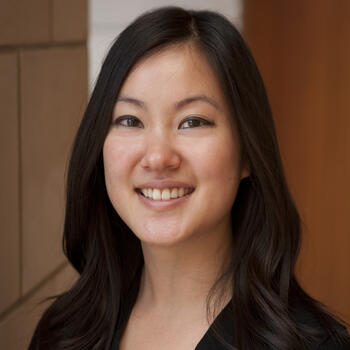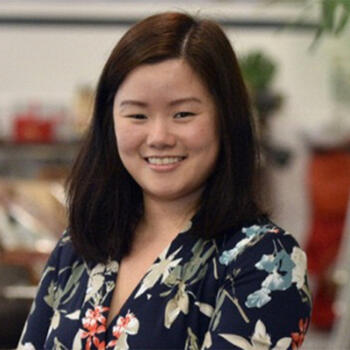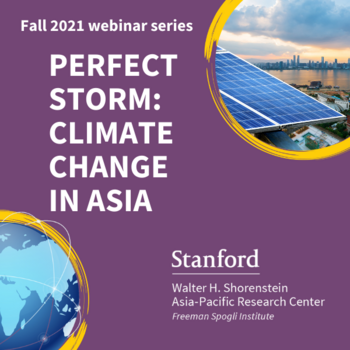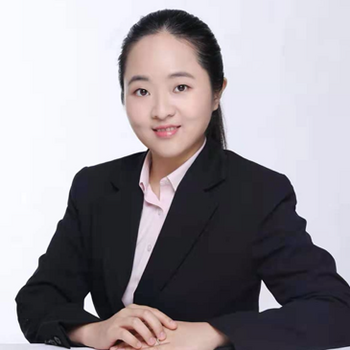Growing Climate Solutions
A major bill with bipartisan support in Congress would reward farmers for an unusual harvest. The Growing Climate Solutions Act(link is external) promises billions of dollars for climate-smart agriculture practices, such as planting cover crops to reduce erosion and sequester carbon. The bill highlights farming’s potential as a climate change solution, as well as the challenge of controlling the sector’s growing greenhouse gas emissions. Below, Stanford Earth scientists Inês Azevedo, David Lobell and Rob Jackson discuss the surprising amount of greenhouse gases emitted by farming, how farmland conservation programs can help reverse the trend and what the federal government can do to promote more climate-friendly agriculture, among other issues.
Azevedo is an associate professor in the Department of Energy Resources Engineering at Stanford’s School of Earth, Energy & Environmental Sciences (Stanford Earth). Her research examines the role of food systems in reaching de-carbonized economies. Lobell is the Gloria and Richard Kushel Director of the Center on Food Security and the Environment. He uses unique datasets to study rural areas; his research has shown how reduced soil tillage can increase yields while nurturing healthier soils and lowering production costs. Jackson is the Michelle and Kevin Douglas Provostial Professor of Energy and Environment in Stanford Earth. His work has shown that global emissions of nitrous oxide increased by 30 percent over the past four decades due mostly to large-scale farming with synthetic fertilizers and cattle ranching, and that well-managed soil’s ability to trap carbon dioxide is potentially much greater than previously estimated.
What might the average person be surprised to learn about greenhouse gas emissions from America’s agricultural lands?
Lobell: First, I think people are surprised that the food system actually uses a very small share of fossil fuels, even when you include all the fertilizer production. Second, people are surprised by how many things they think are good, like eating organic or local foods, have very little effect on emissions and can even be worse than conventional alternatives.
Jackson: Many people are aware that fossil fuel use drives most carbon dioxide emissions, but they might not know that more than half of methane and nitrous oxide emissions attributable to human activities come from agriculture.
Azevedo: I think the average person would be surprised to learn agriculture – including livestock, agricultural soils and agricultural production – accounts for about 10 percent of total U.S. greenhouse gas emissions and, in contrast to some other sectors of the economy, they have increased over time.
Does the Growing Climate Solutions Act go far enough to mitigate and reduce emissions? How could it be stronger?
Lobell: I worry that there isn’t enough emphasis on the main greenhouse gases that agriculture contributes to – nitrous oxide and methane – where progress could probably be made a lot faster than for carbon dioxide. Soil carbon is like motherhood and apple pie – nobody is against it – but I wish that half the energy I see going into how to get more carbon into soil was going into how to reduce emissions of the other gases.
How can programs that reward farmers for certain conservation practices help?
Jackson: The world’s soils contain far more carbon than the atmosphere, but agricultural activities such as plowing have released two hundred billion tons of carbon dioxide to the atmosphere from soils. Conservation programs can help us put some of that carbon back where it belongs, making our soils more fertile and better at retaining water.
Lobell: On one level, these programs can help start the process of making agriculture carbon neutral or even carbon negative. This is important if we want to meet aggressive climate goals. On another level, they can help build a broader political coalition devoted to solving climate change. This might be even more important for climate goals, especially given the disproportionate role of rural states in our federal government.
How should such programs be designed for maximum efficiency and cost-effectiveness?
Lobell: I’m concerned there is a lot of hype out there now on what specific practices can deliver, for example by companies trying to raise large funding rounds on the idea of selling carbon credits. I think it’s important that the programs have a strong system of verification and ability to adjust over time as we learn about what is truly effective.
Jackson: Rather than focusing primarily on carbon dioxide, agricultural incentives would be well served to reduce emissions of methane and nitrous oxide through practices such as better fertilizer and manure management. Methane’s warming potential is 30 times higher than carbon dioxide’s over a century, and nitrous oxide’s warming potential is nearly 300 times higher. Reducing them is a great bang for our climate buck.
From a global perspective, how important is agriculture’s role as a potential climate change solution, and how can policymakers better quantify and track it?
Azevedo: One of the recent things our recent research has shown is that although reducing emissions from fossil fuels is essential for meeting the Paris Agreement goals, other sources of emissions may also preclude its attainment. Specifically, even if all fossil fuel emissions were immediately halted, the achievement of the agreement’s 1.5 degree Celsius maximum temperature increase target would likely not be feasible if global food systems continue along their current trends.
Lobell: I think accelerating public research in this area will be critical, particularly for ways to accurately measure carbon accumulation or emissions reductions on individual farms. If this had been a well-funded area, we might be in a much better position in terms of leveraging all of the private sector enthusiasm for it. Since food is a traded commodity, it will also be important to monitor global land-use change and the extent to which our domestic policies might be having unintended consequences elsewhere.
Azevedo and Jackson are also senior fellows at the Stanford Woods Institute for the Environment and the Precourt Institute for Energy. Lobell is also a professor of Earth system science in Stanford’s School of Earth, Energy & Environmental Sciences, the William Wrigley Senior Fellow at the Stanford Woods Institute for the Environment and a senior fellow at the Freeman Spogli Institute for International Studies and the Stanford Institute for Economic Policy Research.
Stanford scientists discuss climate-smart agriculture












